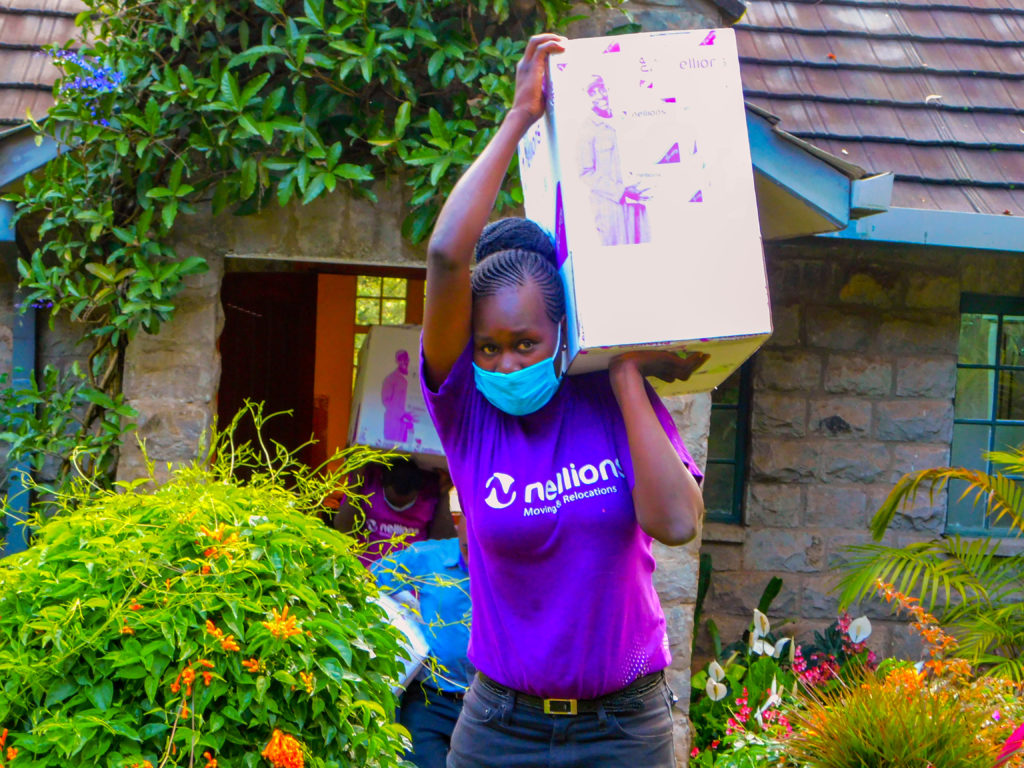Moving out of your parents’ home is an emotional rollercoaster that shifts trepidatiously between delight and fear, colossal enthusiasm and profound anxiety.
It’s all well when you’re thinking about not having someone to tell you what to do, but then questions like “Where do I buy my groceries?” and “What should I cook today?” begin to creep in.
Moving out of your parents’ house is a massive life shift, with many processes and details to consider.
The house moving process starts long before the actual moving day. There’s a lot to consider, from finances and planning to pack and furnishings.
This guide is aimed to reduce stress and dispel the mystery of moving out of the home.
Let’s begin with the essentials.
What do I need to move out for the first time?
Whether you’re moving into a furnished or unfurnished apartment, you’ll have to go shopping. Some of the items you’ll need are essential, and you should purchase them ahead of time if possible. The more oversized items such as furniture may wait till you’ve settled in your new apartment.
Before you relocate, make a checklist of the things you might need.
Here’s a list of some of the things you’ll need for your first day and night in your new place.
Bedding-A mattress, mattress topper, pillows, duvet, and bedsheets are all necessary, even if you don’t want to invest in a bed until you’ve thoroughly analyzed the size of the room.

Curtains – You’ll want a comfortable night’s sleep after a long day of travelling, not to be awakened up early in the morning by the sun. Curtains are also fantastic for retaining heat and providing seclusion.
Toolkit – Hammers, screwdrivers, and nails are handy for repairs and even opening boxes. You’ll need a toolkit to set up a few things in your new place, such as wall hangers.
Stool – You’ll be amazed how frequently you’ll use this – it’ll come in handy not only for unpacking into high cupboards or shelves but also for installing light bulbs once you’ve moved in!
Shower essentials– Pack your shower curtain with your toiletries and towel. You’ll want a nice shower after a long day, and the last thing you’ll want to do afterwards is mopping the bathroom floor.
Ensure that your bathing soap, towel, and any bathing essentials you might need are packed well. Also, make sure you have enough toilet paper in hand.

A first-aid kit- A pack of plasters, ibuprofen, and antiseptic cream wouldn’t go amiss, whether it’s a cut from opening a particularly stubborn box or backache from all the hauling around.
Cleaning materials – Perhaps the previous occupants left some dirt, or all the unloading left muddy footprints all over the house. Whatever the situation, having some essential cleaning products on hand is always a good idea.
Cleaning towels, a mopper, trash bins, toilet cleaner, and scrubbing brushes will come in handy.
Kitchen essentials– You’ll need to pack moving day snacks as you will get hungry in the process of moving everything. In addition, you need to consider what you will have for dinner for that day and breakfast on the next day. The equipment to prepare them should also be ready. Remember to have enough drinking water.

A few plates, mugs, cooking pots, and cooking sticks, as well as gas, are all you need. If you are too tired to cook or don’t have the necessary equipment to facilitate cooking, you can consider eating out if your budget allows.
Electronics-Make sure you have the batteries and extension cords you’ll need and that chargers are within easy reach.
10 Helpful Tips for Moving Out of your Parents’ Home
1. Organize your finances
You probably had some form of a financial safety net while living at home. You’ll need better knowledge of budgeting now that you’re living independently.
Even while it isn’t the most enjoyable part of moving out of your parents’ house, it is crucial.
Discipline is the chief rule of budgeting.
- Begin by keeping track of your monthly income and calculating your average monthly expenses.
- Save some money in the months leading up to your relocation because you’ll almost certainly need to pay a deposit as well as your first month’s rent.
- Make a list of non-negotiable payments, such as your transport expenses, rent, groceries, and phone bill. Then figure out how much money you’ll need and how much rent you can afford.
- Come up with a budget that should include the cost of hiring a moving company or renting a moving truck. Get a precise estimate to know what to expect and weigh the pros and cons of renting a truck versus hiring professional movers.
- Calculate how much money you’ll have leftover to spend on things you’ll need for your first apartment.
2. Ensure that you have a stable source of income
You’re an adult now, so congrats! You undoubtedly feel like you have a lot to learn, and there’s no better place to learn than at work.
Most young adults who first venture out into the world begin their journey to the top with an entry-level position. Such jobs aren’t famous for having good pay in most industries, but don’t let that deter you. Instead, see this work as an opportunity to develop your skills, as well as to make lifelong career decisions.
If your entry-level work doesn’t cover your rent, it might not be the best time to move out on your own until you’ve established some financial security.
3. Before moving out, develop good habits
Again, discipline is the name of the game.
Start adjusting your habits today to make the transition simpler in the future if you’ve been living a carefree life without needing to do many tasks or keep track of your finances. This is an easily overlooked aspect of moving out smoothly.
Pay special attention to your hygiene routines and consider how to improve them.
Start keeping track of your expenditures and sticking to a budget now to have a clear picture of your spending habits before relocating.
If your parents have been purchasing all of your meals, start purchasing some for yourself and ease into food preparation.
4. Prepare yourself emotionally

It’s normal to feel anxious or even depressed about moving out. Make a schedule with your parents for when you’ll see each other next. For example, consider making a plan of going over to your parent’s home for supper on the weekends probably.
If this is your first time living alone, you may be nervous, so take whatever precautions you need to feel safe. Change the locks, introduce yourself to your neighbours, or set aside time on moving day to walk around the neighbourhood and get to know it if you haven’t previously.
Your first night alone in your new home may be strange. You’ll hear new noises in the house, road noises, or perhaps an unsettling amount of quietness. You can always invite a friend over for a first-night sleepover if you’re nervous. That means you’ll also get assistance with unloading, which will be a plus for you.
5. Understand the location where you’re moving
There are many locations to seek a suitable apartment online, but referrals from your family and close friends will go a long way in helping you identify a suitable location.
Keep your rent budget in check. It may be tempting to choose something somewhat out of your price range simply because it is attractive, but you will most certainly come to regret your decision later.
It’s easy to make compromises when it comes to location. For example, you could believe an hour’s walk to the bus station is worth it for the reduced rent, but walking that distance every day could be tiring and tiresome.
Visit the location at various times of the day to get a sense of the traffic and the busyness of the route.
Select a location that is convenient to both your workplace and other points of interest. You might wish to be close to a gym, a park, or a fantastic bakery, for example.
Ascertain that your new residence is secure. Check the crime rate on that street before signing a lease if the rent appears to be too low.
Pro tip: When it comes to security, talk to several residents of the area about their concerns/habits. Ask a shopkeeper how late they remain open into the night. Their response (verbal and non-verbal) will tell you everything you need to know.
6. Create a chore schedule

It’s easy to let things go a little loose in those first few weeks after moving from home – a sink overflowing with unwashed dishes, unfolded laundry, or a bathroom that collects layers of dirt.
You’ll wish you hadn’t let things get so terrible after a while.
To curb this kind of stress, create (and stick to) a chore schedule as soon as you get in.
Break down the essential tasks that must be completed weekly and write them down somewhere visible; using chalk or a whiteboard, you can mark them off as they are completed and keep track.
In case you have a roommate, get them on board so that you can both contribute to making your house a home. This will assist in clearing up any confusion about who was responsible for taking out the garbage this week.
7. Learn How to Perform Basic Lifestyle Tasks
It’s tempting to blame your parents when you move out for the first time and realize you don’t know how to do laundry or make a meal for yourself.
Instead, take it upon yourself to study as much as you can about critical home-focused chores. Most of this information is freely available on the internet – there’s no excuse for not knowing.
Fundamental cleaning tasks
- Dusting
- Vacuuming, sweeping and mopping
- Cleaning the bathroom
Laundry basics
- Using a washing machine and dryer
- Folding
- Ironing
Cooking basics
- Shopping for groceries
- Cooking simple meals (or more ambitious ones, if you like)
8. Are you planning to have a roommate?
When it comes to deciding whether or not you want to live with a roommate, it’s all about weighing the benefits and drawbacks. It is, therefore, crucial to critically think it through.
We understand that you may not want to cope with another person’s music or clutter, yet living alone can be lonely and boring. Not to mention, it helps to have someone else with whom to split the bills.
Having roommates may even open up a more comprehensive selection of housing options by allowing you to share expenses with others. You may have a bigger apartment or one in a better location while you spend the same or less money in total.
Of course, having a roommate isn’t a requirement for moving out for the first time. Many people prefer living alone and having their own space.
9. Don’t be afraid to seek assistance from your parents
They’ve most likely done this before, at least a few times, and will be able to guide you through the process. Request that they assist you in calculating projected moving costs, including items such as a shower curtain, bedding, or a fresh coat of paint in your new kitchen that you may not have considered. They might even have some ideas about what you should do before leaving their house.
They’re highly likely going to miss having you around, so giving them the chance to look after you while before gone will make them happy.
More importantly, your parent’s can provide solid advice for adulting, including most of the points laid out in this article. Don’t be afraid to call them when you need a special recipe.
10. Employ the Services of a Moving Company

For the conscientious youth, you’ve been planning to move out of home for quite some time, gradually acquiring the items you’ll need along the way. This cache of items can get quite big, especially if you lived alone when on campus.
You may find the costs of hiring a professional moving company prohibitive, and you’d be prudent to ask your friends for a hand on moving day.
However, consider engaging a professional moving company if you have lots of fragile items and memorabilia, or want total peace and convenience.


